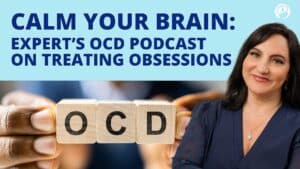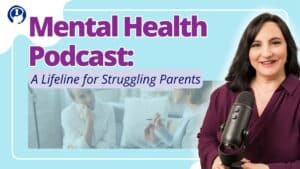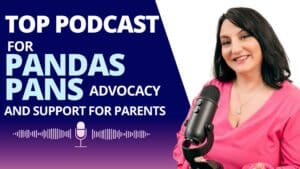How does one stop ruminating in OCD? Understanding the dynamics of Obsessive Compulsive Disorder (OCD) and the intricacies of rumination is the first step in breaking the cycle. OCD is characterized by intrusive thoughts and repetitive behaviors, and within this context, rumination refers to the relentless cycle of repetitive negative thinking. Exploring the relationship between OCD and rumination sets the stage for effective strategies to stop this detrimental cycle.
But one of the many significant challenges faced by individuals dealing with OCD, aside from rumination, is the prevailing silence and stigma surrounding mental health conditions. Overcoming this silence is crucial for fostering an environment where individuals feel comfortable seeking help and support.
Initiating open conversations about OCD and encouraging individuals, especially children and teens, to express their negative experiences is a helpful way to break the cycle of rumination. Creating a safe space where they feel heard and understood is instrumental in dismantling the barriers that often accompany mental health conditions.
Dispelling the Myths and Misconceptions of OCD Rumination
Dispelling myths and misconceptions surrounding OCD is essential for reducing stigma. Many misconceptions can contribute to the shame associated with OCD. These hinder children and teens from seeking the help they need. With accurate information and fostering awareness, we can contribute to a more supportive and understanding community.
Here are the most common OCD myths:
Myth: Everyone ruminates, so it's not a big deal.
Reality: While it’s true that people ruminate or may experience occasional intrusive or negative thoughts, the intensity, frequency, and impact on daily life distinguish OCD rumination. In OCD, rumination can become overwhelming and interfere significantly with daily functioning.
Myth: People with OCD can just stop thinking about their obsessions if they try hard enough.
Reality: The core feature of OCD is that the obsessions are unwanted and distressing. Trying to stop thinking about them is often counterproductive and can lead to increased generalized anxiety disorder or even panic disorder. It's not a matter of willpower but a complex mental health condition.
Myth: OCD is just about being overly neat and organized.
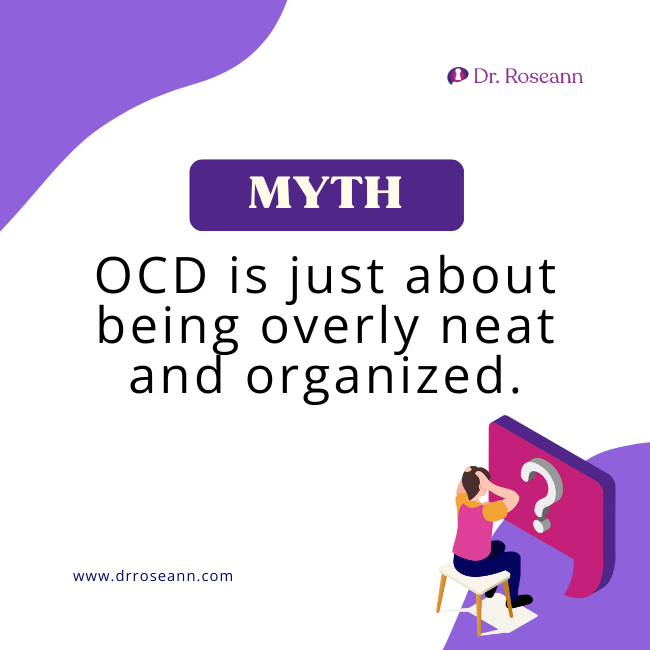
Reality: While some people with OCD may have compulsions related to cleanliness and organization, the disorder can manifest in various ways. Rumination may focus on fears of harming others, contamination, fears of making a mistake, or fears of committing a taboo act. The obsessions and compulsions vary widely among individuals.
Myth: OCD is just a personality quirk or a sign of perfectionism.
Reality: OCD is a clinically recognized mental health disorder, not just a personality trait. While perfectionism might be a component for some individuals, OCD involves ruminating and intrusive thoughts and ritualistic behaviors that go beyond normal personality variations.
Myth: People with OCD enjoy engaging in rituals or rumination.
Reality: The rituals and rumination in OCD are not enjoyable; they are performed to reduce anxiety or prevent a feared event. Individuals with OCD often recognize that their unwanted thoughts and behaviors are irrational but feel compelled to perform them due to the anxiety, depression, and distress associated with not doing so.
Myth: OCD is easy to overcome with willpower alone.
Reality: OCD is a complex mental health condition that often requires professional treatment. Cognitive behavioral therapy (CBT), particularly exposure and response prevention (ERP), is a common and effective therapeutic approach for managing OCD symptoms. Other therapies may also be prescribed in some cases.
Myth: OCD is a rare condition.
Reality: OCD is more common than often believed. It affects people from all walks of life, and estimates suggest that about 1-2% of the global population may experience OCD at some point in their lives (Sasson et al., 1997).
Myth: OCD is always genetic.
Reality: OCD can result from genetic inheritance, genetic variations, brain inflammation, anxiety, trauma, and other factors.
Strategies to Stop OCD Rumination
Addressing the core of rumination in OCD requires a multifaceted approach. Cognitive Behavioral Therapy (CBT), mindfulness exercises, and other therapeutic techniques are effective strategies for interrupting the cycle of repetitive thoughts. Identifying triggers and implementing targeted interventions can empower individuals to regain control over such thoughts and emotions.
But beyond traditional therapeutic approaches, developing healthy coping mechanisms is vital for sustained recovery. Encouraging individuals to engage in activities that bring joy, practicing mindfulness meditation, and incorporating relaxation techniques into daily life provide valuable tools for managing and redirecting thoughts away from compulsive rumination. Here are effective techniques:
Cognitive Restructuring
Challenge and reframe irrational thoughts associated with obsessions. Identify cognitive distortions and work on replacing negative, catastrophic thoughts with more realistic and balanced ones.
Exposure and Response Prevention (ERP)
ERP is a specific form of cognitive-behavioral therapy (CBT) that is highly effective for OCD (Twohig et al., 2010). It involves gradually exposing oneself to anxiety-provoking thoughts or situations and resisting the urge to engage in compulsive behaviors. Over time, this helps to reduce the anxiety disorders associated with the obsessions.
Scheduled “Worry Time”
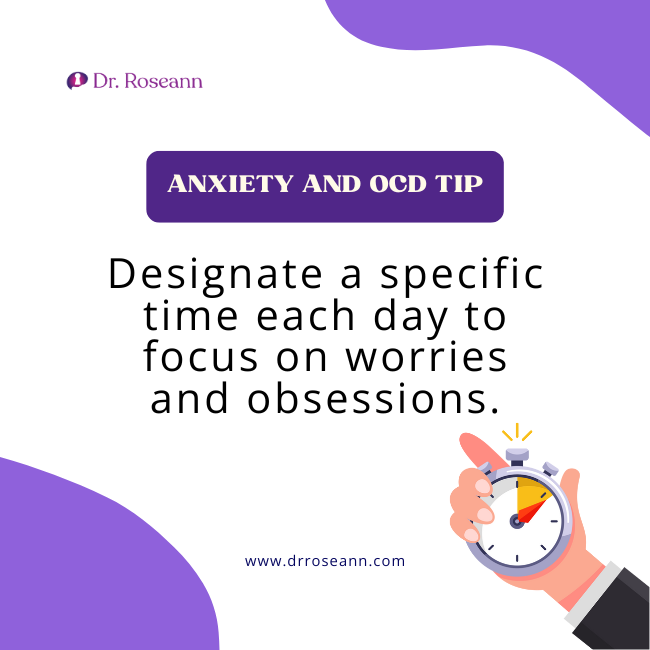
Outside of this time, make a conscious effort to redirect your attention to other activities. This can help contain and control the impact of ruminations.
Distraction Techniques
Engage in activities that capture your child’s focus, paying attention to things like hobbies, physical activity, or socializing. These can help redirect your thoughts away from obsessive rumination, repetitive thinking, and negative emotions.
Keep a journal to track your obsessive thoughts and associated behaviors. This can help you identify thought patterns, triggers, and the effectiveness of different strategies in managing any symptoms of OCD.
Mental Health Professional Intervention
Seeking professional insights and advice is a crucial aspect of stopping the cycle of rumination and mental compulsion. Experts, including licensed therapists and OCD specialists, can provide tailored perspectives on effective therapeutic approaches. This expert guidance is instrumental in creating a comprehensive and personalized action plan.
The BrainBehaviorReset™ Program offers a personalized approach that addresses various mental health challenges in children, including OCD. Ii incorporates science-backed solutions like neurofeedback and PEMF therapy to provide expert guidance and a customized care plan to calm the child's brain through a multi-pronged approach, including magnesium supplements and lifestyle changes.
The high-touch point program emphasizes ongoing support for families, concluding with a comparative brain map analysis session to assess changes in the child's brain and behavior. The program's integrative and tailored strategies aim to bring about lasting results and acknowledge the unique needs of the child and family members in addressing OCD and related conditions, without the need for medications like Selective Serotonin Reuptake Inhibitors (SSRIs)
When it comes to OCD, moving forward and embracing recovery involves setting realistic goals, celebrating progress, and prioritizing long-term mental health. Maintaining a proactive approach to mental well-being ensures that your child can sustain the positive changes achieved in their journey away from the cycle of rumination. Soon, they’ll be comfortable in their thought process, live fully in the present moment, and improve their quality of life.
Parent Action Steps
☐ Find a healthcare provider expert in Obsessive-Compulsive Disorder to intervene.
☐ Work with your child to challenge any irrational or ruminative thought.
☐ Support your child in engaging in activities that redirect thoughts away from rumination.
☐ Track obsessive thoughts and identify patterns and triggers.
☐ Take the OCD Quiz to identify OCD rumination in your child.
☐ Use the Solutions Matcher to get personalized OCD treatment for your child.
Citations
Abramowitz, J. S., Whiteside, S., Kalsy, S. A., & Tolin, D. F. (2003). Thought control strategies in obsessive-compulsive disorder: a replication and extension. Behaviour research and therapy, 41(5), 529–540. https://doi.org/10.1016/s0005-7967(02)00026-8
Stein, D. J., Costa, D. L. C., Lochner, C., Miguel, E. C., Reddy, Y. C. J., Shavitt, R. G., van den Heuvel, O. A., & Simpson, H. B. (2019). Obsessive-compulsive disorder. Nature reviews. Disease primers, 5(1), 52. https://doi.org/10.1038/s41572-019-0102-3
Van Noppen, B., Sassano-Higgins, S., Appasani, R., & Sapp, F. (2021). Cognitive-Behavioral Therapy for Obsessive-Compulsive Disorder: 2021 Update. Focus (American Psychiatric Publishing), 19(4), 430–443. https://doi.org/10.1176/appi.focus.20210015
Dr. Roseann is a Children’s Mental Health Expert and Licensed Therapist who has been featured in/on hundreds of media outlets including The Mel Robbins Show, CBS, NBC, PIX11 NYC, Today, FORBES, CNN, The New York Times, The Washington Post, Business Insider, Women’s Day, Healthline, CNET, Parade Magazine and PARENTS. FORBES called her, “A thought leader in children’s mental health.”

She coined the terms, “Re-entry panic syndrome” and “eco-anxiety” and is a frequent contributor to media on mental health.
Dr. Roseann Capanna-Hodge has three decades of experience in working with children, teens and their families with attention-deficit hyperactivity disorder (ADHD), autism, concussion, dyslexia and learning disability, anxiety, Obsessive Compulsive Disorder (OCD), depression and mood disorder, Lyme Disease, and PANS/PANDAS using science-backed natural mental health solutions such as supplements, magnesium, nutrition, QEEG Brain maps, neurofeedback, PEMF, psychotherapy and other non-medication approaches.
She is the author of three bestselling books, It’s Gonna Be OK!: Proven Ways to Improve Your Child's Mental Health, The Teletherapy Toolkit, and Brain Under Attack. Dr. Roseann is known for offering a message of hope through science-endorsed methods that promote a calm brain.
Her trademarked BrainBehaviorResetⓇ Program and It’s Gonna be OK!Ⓡ Podcast has been a cornerstone for thousands of parents facing mental health, behavioral or neurodevelopmental challenges.
She is the founder and director of The Global Institute of Children’s Mental Health, Neurotastic™Brain Formulas and Dr. Roseann Capanna-Hodge, LLC. Dr. Roseann is a Board Certified Neurofeedback (BCN) Practitioner, a Board Member of the Northeast Region Biofeedback Society (NRBS), Certified Integrative Mental Health Professional (CIMHP) and an Amen Clinic Certified Brain Health Coach. She is also a member of The International Lyme Disease and Associated Disease Society (ILADS), The American Psychological Association (APA), Anxiety and Depression Association of America (ADAA) National Association of School Psychologists (NASP), International OCD Foundation (IOCDF).
© Roseann-Capanna-Hodge, LLC 2023





